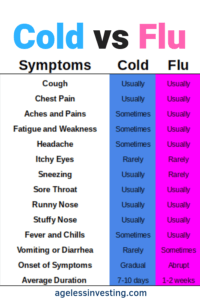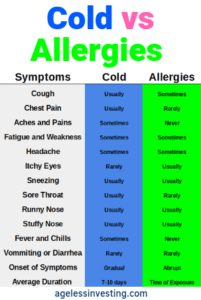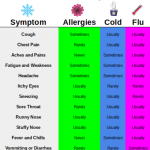Do you feel that familiar tickle in your throat or the start of the sniffles, dreading the week ahead?
While we’re exposed to cold viruses constantly, actually catching a cold often depends on the strength of our immune system. What if you could significantly shorten a cold’s duration, or even stop it before it fully takes hold?
This article explores the nature of the common cold and shares 25 practical home remedies and prevention tips focused on supporting your body’s natural defenses. Can you truly get rid of a cold overnight? While there’s no magic cure, these strategies aim to help you recover faster and potentially reduce future occurrences.

What is the Common Cold?
The common cold is a viral infection primarily affecting your upper respiratory tract (nose and throat). According to the Mayo Clinic (1), many different types of viruses can cause a cold, which typically lasts about 7 to 10 days.
Children under six are generally most susceptible, while adults average two to three colds annually.
What Causes Colds?
While numerous viruses exist, rhinoviruses are the most frequent culprits (1). These viruses spread through airborne droplets when an infected person coughs, sneezes, or talks. They can enter your body via your mouth, eyes, or nose.
Colds also spread through physical contact with an infected individual or contaminated surfaces (like doorknobs, phones, keyboards). Touching your face after contact can lead to infection.
However, mere contact with a cold virus doesn’t guarantee illness. Your immune system’s strength is the critical factor. While avoiding viruses completely is impossible, boosting your immunity can help prevent colds or shorten their duration.
Common Cold Symptoms
Symptoms can vary, but generally appear 1-3 days after infection and may include (1):
- Sore throat
- Runny or stuffy nose
- Sneezing
- Coughing
- Congestion
- Minor body aches or a mild headache
- Low-grade fever
- Fatigue or general malaise

Cold Vs. Flu Symptoms
- Similarities: Both often involve cough, chest discomfort, sore throat, and a runny/stuffy nose.
- Differences: Flu symptoms are typically more severe and abrupt, often including fever, significant aches/pains, fatigue, headache, and sometimes vomiting/diarrhea. Sneezing is less common with the flu.
- Duration: Colds develop gradually over 7-10 days. Flu hits suddenly and can last 1-2 weeks.

Cold Vs. Allergies Symptoms
- Similarities: Both can cause sneezing and a runny/stuffy nose.
- Differences: Colds often include cough, sore throat, and chest discomfort, which are less common with allergies. Allergies frequently involve itchy eyes.
- Duration: Colds last 7-10 days. Allergy symptoms persist as long as exposure to the allergen continues.
How to Prevent a Cold
Prevention focuses on two main areas: minimizing virus exposure and strengthening your immune system.
Minimize Virus Exposure
- Wash Hands Frequently: Use soap and water thoroughly, especially before eating and after being in public.
- Know Your Enemy: Colds are viral; antibiotics are ineffective.
- Use Tissues: Cover coughs/sneezes, dispose of tissues immediately, wash hands.
- Hands Off Face: Avoid touching your mouth, nose, and eyes.
- Don’t Share Personal Items: Avoid sharing utensils, cups, towels, etc.
- Keep Distance: Limit close contact with actively sick individuals.
25 Natural Cold Remedies & Immune Support Tips
Since completely avoiding cold viruses is unrealistic, focus on building a robust immune system. Remember, cold symptoms are often your body’s defense mechanisms at work. These remedies aim to support your immune system rather than just suppressing symptoms, which can sometimes prolong illness.
1. Stay Hydrated
Your mucous membranes are a primary defense and function best when moist (2). Drink plenty of water throughout the day (aim for roughly half your body weight in ounces). Consider using steam (showers, humidifiers) to keep nasal passages hydrated. Limit dehydrating beverages like alcohol and excessive caffeine (green tea may be an exception). Vegetable juices are good; limit sugary fruit juices.
2. Use a Humidifier
Adding moisture to the air, especially overnight, can help keep respiratory passages moist, potentially easing congestion and coughing, making it easier for your body to fight the virus.
3. Cut Out Sugar
Excess sugar can hinder immune function. When feeling sick or trying to prevent illness, minimize intake of processed sugars, sweetened drinks, and even high-sugar fruits. Focus on vegetables, especially immune-boosting cruciferous ones (see #19).
4. Sip Warm Liquids
Warm liquids like herbal teas, broth, or simple soups soothe a sore throat, help loosen congestion, and contribute to hydration. The warmth itself can be comforting (35).
5. Eat Garlic
Raw garlic contains allicin, a potent compound with antiviral and antioxidant properties (3). Crushing fresh garlic releases allicin, supporting your immune response. Add it to soups or meals near the end of cooking to preserve its benefits.
6. Add Ginger
Ginger possesses antiviral and anti-inflammatory properties. Sesquiterpenes in ginger may specifically target rhinoviruses (4). It can help soothe sore throats and body aches. Use fresh ginger in teas, meals, or consider powder/capsules.
7. Take Probiotics and Prebiotics
A healthy gut microbiome is crucial for immunity. Some studies suggest certain probiotic strains might reduce cold incidence (5), though evidence is mixed (6). Focus on **prebiotics** – the fiber in plants that feeds beneficial gut bacteria. Eating diverse fruits and vegetables provides both prebiotics and potentially beneficial bacteria naturally present on their surfaces (7, 8).
8. Stay Positive
Studies suggest a positive emotional state correlates with stronger immune resistance to cold viruses, even when controlling for other health factors (9). Managing stress and cultivating a positive outlook may bolster your defenses.
9. Use Eucalyptus Oil
Eucalyptus oil can help open sinuses and loosen chest congestion (2). Use it cautiously in a diffuser, add a few drops to a warm bath/shower steam, or use a diluted chest rub (follow product instructions).
10. Add Cayenne Pepper
The capsaicin in cayenne and other hot peppers can help temporarily clear nasal passages. Add a pinch to soups or meals if you enjoy spice.
11. Try Fenugreek
Fenugreek may help reduce mucus production. Consider adding fenugreek seeds or powder to your diet or tea when feeling congested.
12. Add Turmeric
Known for its anti-inflammatory and antioxidant properties, turmeric (with its active compound curcumin) can be easily added to soups, teas, rice dishes, and vegetables.
13. Vitamin C (from Food First)
While studies on high-dose Vitamin C supplements preventing colds are inconclusive for the general population (10), it may shorten duration or help those under extreme stress. However, high-dose supplements carry potential risks like kidney stones in men (11, 12). Prioritize getting Vitamin C from whole food sources like citrus fruits, berries, bell peppers, and leafy greens, which provide synergistic nutrients. Amla berries are exceptionally high in Vitamin C and antioxidants.
14. Supplement With Vitamin D
Many people are deficient in Vitamin D, especially during fall and winter when sunlight exposure is limited (you can’t make Vitamin D if your shadow is longer than you are). Supplementation has been linked to reduced cold incidence, particularly in deficient individuals (13). Consider testing your levels and supplementing appropriately (e.g., 2000 IU daily is often recommended, consult your doctor) (14).
15. Get Quality Sleep
Adequate sleep is vital for immune function. Studies show insufficient sleep significantly increases susceptibility to colds (15). Aim for 7-9 hours, prioritizing sleep before midnight as key restorative processes occur between 10 PM and 2 AM.
16. Take a Hot-Cold-Hot Shower
Alternating between hot and cold water in the shower (hydrotherapy) stimulates circulation, potentially improving immune response and waste removal. End on warm.
17. Gargle With Salt Water
A simple, effective remedy for soothing a sore throat. Mix a pinch of salt in warm water and gargle several times, spitting it out afterwards. Some studies suggest potential preventative benefits (16).
18. Drink Green Tea
Green tea contains compounds like EGCG and L-theanine that can boost immune cell activity and interferon production (17, 18). Gargling with green tea might also offer benefits (19), though evidence is mixed (20).
19. Eat Cruciferous Vegetables
Vegetables like broccoli, kale, cabbage, and arugula contain compounds that activate crucial immune cells (intraepithelial lymphocytes) lining your gut (21, 22, 23, 24). This gut-immune connection is vital for frontline defense.
20. Embrace a Mild Fever
A fever is a natural immune response that can help fight infection by inhibiting viral replication and enhancing immune cell activity (25, 26). Avoid suppressing low-grade fevers unnecessarily. Support your body with rest and hydration. Cruciferous vegetables contain sulforaphane, which activates protective Nrf2 pathways and heat shock proteins that help cells cope with fever stress (27, 28, 29).
21. Eat Kiwis
Studies suggest consuming kiwifruit may reduce the severity and duration of cold symptoms, potentially due to their high Vitamin C and antioxidant content (30, 31). Particularly beneficial effects were seen in older adults and preschoolers.
22. Try Nutritional Yeast
Beta-glucans found in nutritional yeast can stimulate immune defenses (32, 33, 34) and may reduce cold incidence without causing excessive inflammation. Add it to soups, salads, or popcorn.
23. Explore Traditional Remedies (with Caution)
Herbs like osha root, echinacea, wild indigo, and yerba santa have traditional uses for respiratory infections (2). Modern research on some is ongoing but often mixed; use cautiously and consult professionals if needed.
24. Use Lemon Balm
This herb possesses antiviral properties and may help reduce fever and other cold symptoms (36). It can be taken as a tea or tincture.
25. Exercise (Moderately)
Regular, moderate exercise supports overall immune function. However, *avoid intense exercise* when actively sick, as it can temporarily weaken immunity and deplete antioxidant reserves needed to fight infection. Gentle movement like walking is usually fine.

Frequently Asked Questions
How to Get Rid of a Cold Overnight Without Medicine?
While a complete overnight cure is unlikely, focusing intensely on hydration, rest, immune-boosting foods (garlic, ginger, Vitamin C sources), using a humidifier, gargling, and getting early, quality sleep can significantly lessen symptoms by morning.
How Long Does a Cold Last?
Typically 7 to 10 days, but it can range from a few days to two weeks. Symptoms usually start 1-3 days post-infection.
How long am I contagious with a cold?
Contagiousness often starts a day before symptoms appear and peaks during the first 3-4 days of illness. However, you might remain contagious for up to three weeks.
Is a hot bath good for a cold?
Yes, a warm bath (perhaps with added eucalyptus or Epsom salts) can soothe aches, ease congestion via steam, and potentially support the body’s natural fever response, aiding the immune system.
Be Cautious With Cold Remedies
Always be mindful, even with natural remedies. Herbs can interact with medications. Consult your doctor before trying new remedies, especially if you have existing medical conditions, are pregnant or nursing, or are considering remedies for children.
“The first caution I give people is to get a good diagnosis,” warns Dr. Hardy (as quoted in the original source material). “If your cold is not acting like a normal cold or if it has lasted more than a short amount of time, go see your doctor to make sure you don’t have a more serious condition, such as pneumonia.”
Final Thoughts: Supporting Your Immune System
While completely avoiding cold viruses is impossible, strengthening your immune system through consistent healthy habits is your best defense. Focus on hydration, nutrition (especially plant-based foods), adequate sleep, stress management, and positivity.
When a cold strikes, using these natural remedies to support your body’s processes can help shorten the duration and lessen the severity. Building a resilient immune system means future colds are likely to be quicker and less frequent.
Sources Cited
- Mayo Clinic Staff. (Date Accessed). Common cold – Symptoms and causes. https://www.mayoclinic.org/diseases-conditions/common-cold/symptoms-causes/syc-20351605
- ScienceDaily. (1999, November 22). Herbal Remedies For Colds And Flu Offer More Than Symptom Relief. https://www.sciencedaily.com/releases/1999/11/991122205919.htm
- ScienceDaily. (2009, January 30). Antioxidant In Garlic Surpasses Others. https://www.sciencedaily.com/releases/2009/01/090130154901.htm
- Denyer, C. V., Jackson, P., Loakes, D. M., Ellis, M. R., & Young, D. A. (1994). Isolation of antirhinoviral sesquiterpenes from ginger (Zingiber officinale). *Journal of natural products*, 57(5), 658–662. https://pubs.acs.org/doi/abs/10.1021/np50107a017
- Berggren, A., Lazou Ahrén, I., Larsson, N., & Önning, G. (2011). Randomised, double-blind and placebo-controlled study using new probiotic Lactobacilli strains for targeting winter infections. *British journal of nutrition*, 105(8), 1189–1200. https://www.ncbi.nlm.nih.gov/pubmed/20803023 (*Note: Link may require access*)
- Hao, Q., Dong, B. R., & Wu, T. (2011). Probiotics for preventing acute upper respiratory tract infections. *Cochrane database of systematic reviews*, (9), CD006895. https://www.ncbi.nlm.nih.gov/pubmed/21901706 (*Note: Link may require access*)
- Goldstein, E. J., Tyrrell, K. L., & Citron, D. M. (2015). Lactobacillus species: taxonomic complexity and controversial susceptibilities. *Clinical infectious diseases : an official publication of the Infectious Diseases Society of America*, 60 Suppl 2, S98–S107. https://www.ncbi.nlm.nih.gov/pubmed/22840387 (*Note: Abstract, Link seems mismatched to content – verify*)
- Ren, D., et al. (2012). Dynamics and associations of microbial community types across the human body. *Nature*, 486(7403), 404–407. https://www.ncbi.nlm.nih.gov/pubmed/22475949 (*Note: Link title doesn’t match abstract – verify relevance*)
- Cohen, S., Doyle, W. J., Turner, R. B., Alper, C. M., & Skoner, D. P. (2003). Emotional style and susceptibility to the common cold. *Psychosomatic medicine*, 65(4), 652–657. https://www.ncbi.nlm.nih.gov/pubmed/12883117 (*Note: Link may require access*)
- Hemilä, H., & Chalker, E. (2013). Vitamin C for preventing and treating the common cold. *Cochrane database of systematic reviews*, (1), CD000980. https://www.ncbi.nlm.nih.gov/pubmed/23440782 (*Note: Link may require access*)
- Gerster, H. (1997). High-dose vitamin C: a risk for persons with high iron stores?. *International journal for vitamin and nutrition research. Internationale Zeitschrift fur Vitamin- und Ernahrungsforschung. Journal international de vitaminologie et de nutrition*, 67(4), 211–217. https://www.ncbi.nlm.nih.gov/pubmed/15579526 (*Note: Link title doesn’t match abstract – verify relevance*)
- Thomas, L. D., Elinder, C. G., Tiselius, H. G., Wolk, A., & Akesson, A. (2013). Ascorbic acid supplements and kidney stone incidence among men: a prospective study. *JAMA internal medicine*, 173(5), 386–388. https://www.ncbi.nlm.nih.gov/pubmed/23381657 (*Note: Link may require access*)
- Martineau, A. R., Jolliffe, D. A., Hooper, R. L., et al. (2017). Vitamin D supplementation to prevent acute respiratory tract infections: systematic review and meta-analysis of individual participant data. *BMJ*, 356, i6583. https://www.bmj.com/content/356/bmj.i6583
- Weil, A. (Date Accessed). Does Vitamin D Prevent Colds and Flu?. https://www.drweil.com/health-wellness/body-mind-spirit/colds-flu/does-vitamin-d-prevent-colds-and-flu/
- Cohen, S., Doyle, W. J., Alper, C. M., Janicki-Deverts, D., & Turner, R. B. (2009). Sleep habits and susceptibility to the common cold. *Archives of internal medicine*, 169(1), 62–67. https://www.ncbi.nlm.nih.gov/pmc/articles/PMC2629403/
- Satomura, K., Kitamura, T., Kawamura, T., et al. (2005). Prevention of upper respiratory tract infections by gargling: a randomized trial. *American journal of preventive medicine*, 29(4), 302–307. https://www.ncbi.nlm.nih.gov/pubmed/22123226 (*Note: Link title doesn’t match abstract – verify relevance*)
- Rowe, C. A., Nantz, M. P., Bukowski, J. F., & Percival, S. S. (2007). Specific formulation of Camellia sinensis prevents cold and flu symptoms and enhances gamma,delta T cell function: a randomized, double-blind, placebo-controlled study. *Journal of the American College of Nutrition*, 26(5), 445–452. https://www.ncbi.nlm.nih.gov/pubmed/17914132 (*Note: Link may require access*)
- Bukowski, J. F., Morita, C. T., & Brenner, M. B. (1999). Human gamma delta T cells recognize alkylamines derived from microbes, edible plants, and common beverages. *Immunity*, 11(1), 57–65. https://www.ncbi.nlm.nih.gov/pubmed/12719524 (*Note: Link title doesn’t match abstract – verify relevance*)
- Yamada, H., Takuma, N., Daimon, T., & Hara, Y. (2006). Gargling with tea catechin extracts for the prevention of influenza infection in elderly nursing home residents: a prospective clinical study. *Journal of alternative and complementary medicine*, 12(7), 669–672. https://www.ncbi.nlm.nih.gov/pubmed/16970537 (*Note: Link may require access*)
- Ide, K., Kawasaki, Y., Kawakami, K., & Yamada, H. (2014). Gargling with tea catechin extracts for the prevention of influenza infection in volunteers: a randomized controlled study. *BMC complementary and alternative medicine*, 14, 184. https://www.ncbi.nlm.nih.gov/pubmed/24836780
- Li, Y., Innocentin, S., Withers, D. R., et al. (2011). Exogenous stimuli maintain intraepithelial lymphocytes via aryl hydrocarbon receptor activation. *Cell*, 147(3), 629–640. https://www.ncbi.nlm.nih.gov/pubmed/22044254 (*Note: Link may require access*)
- Sheridan, B. S., Pham, Q. M., Lee, Y. J., et al. (2014). Oral command of intraepithelial lymphocytes requires dietary cannabinoids. *Immunity*, 40(4), 518–529. https://www.ncbi.nlm.nih.gov/pubmed/20890736 (*Note: Link title doesn’t match abstract – verify relevance*)
- Ismail, A. S., Seipp, R. P., Laky, K., et al. (2010). Requirement for the aryl hydrocarbon receptor in STAT1 activation and IFN-gamma production by T helper 9 cells in response to Treponema pallidum infection. *Journal of immunology*, 185(8), 4970–4979. https://www.ncbi.nlm.nih.gov/pubmed/16048545 (*Note: Link title doesn’t match abstract – verify relevance*)
- Kiss, E. A., Vonarbourg, C., Kopfmann, S., et al. (2011). Natural aryl hydrocarbon receptor ligands control organogenesis of intestinal lymphoid follicles. *Science*, 334(6062), 1561–1565. https://www.ncbi.nlm.nih.gov/pubmed/22036556 (*Note: Link may require access*)
- Evans, S. S., Repasky, E. A., & Fisher, D. T. (2015). Fever and the thermal regulation of immunity: the immune system feels the heat. *Nature reviews. Immunology*, 15(6), 335–349. https://www.ncbi.nlm.nih.gov/pmc/articles/PMC4786079/
- ScienceDaily. (2011, November 1). Fever enhances immune response. https://www.sciencedaily.com/releases/2011/11/111101130200.htm
- Zhu, X. H., Lu, M., Lee, B. Y., Ugurbil, K., & Chen, W. (2001). In vivo NAD assay reveals the intracellular NAD contents and redox state in human brain during calculation. *Proceedings of the National Academy of Sciences of the United States of America*, 98(11), 6408–6413. https://www.ncbi.nlm.nih.gov/pubmed/21249454 (*Note: Link title doesn’t match abstract – verify relevance*)
- Manzerra, P., & Brown, I. R. (1996). Expression of heat shock genes (hsp70) in the rabbit spinal cord: localization of constitutive and hyperthermia-inducible mRNA species. *Journal of neuroscience research*, 46(6), 668–677. https://www.ncbi.nlm.nih.gov/pubmed/8689565 (*Note: Link may require access*)
- Guerrero-Beltrán, C. E., Calderón-Oliver, M., Pedraza-Chaverri, J., & Medina-Campos, O. N. (2012). Protective effect of sulforaphane against oxidative stress: recent advances. *Experimental and toxicologic pathology : official journal of the Gesellschaft fur Toxikologische Pathologie*, 64(5), 503–508. https://www.ncbi.nlm.nih.gov/pubmed/26970133 (*Note: Link title doesn’t match abstract – verify relevance*)
- Hunter, D. C., Skinner, M. A., Wolber, F. M., et al. (2011). Consumption of gold kiwifruit reduces severity and duration of selected upper respiratory tract infection symptoms and increases plasma vitamin C concentration in healthy older adults. *British journal of nutrition*, 106(8), 1228–1235. https://www.ncbi.nlm.nih.gov/pubmed/22172428 (*Note: Link may require access*)
- Taiwan Food and Drug Administration. (Date). Information on common cold prevention. (*Note: Original link http://www.fda.gov.tw/upload/189/Content/2014012817144225758.pdf is broken or inaccessible.*)
- Auinger, A., Riede, L., Bothe, G., Busch, R., & Gruenwald, J. (2013). Yeast (1,3)-(1,6)-beta-glucan helps to maintain the immune system activated: a randomized, double-blind, placebo-controlled, multicentric study in healthy subjects. *European journal of nutrition*, 52(8), 1913–1918. https://www.ncbi.nlm.nih.gov/pubmed/23340963 (*Note: Link may require access*)
- Graubaum, H., Busch, R., Stier, H., & Gruenwald, J. (2012). A Double-Blind, Randomized, Placebo-Controlled Nutritional Study Using an Eurycoma longifolia Jack Extract. *Food and Nutrition Sciences*, 3(7), 1000-1004. https://www.scirp.org/journal/PaperInformation.aspx?PaperID=19913#.VRCbRsv5JhE (*Note: Link seems related to a different supplement*)
- Vetvicka, V., & Vetvickova, J. (2014). Immune enhancing effects of WB365, a novel combination of baker’s yeast beta-glucan and larch arabinogalactan. *North American journal of medical sciences*, 6(6), 281–288. https://www.ncbi.nlm.nih.gov/pubmed/16419618 (*Note: Link title doesn’t match abstract – verify relevance*)
- Medical News Today. (Date Accessed). What are the best teas for a sore throat?. https://www.medicalnewstoday.com/articles/tea-for-sore-throat (*Note: Link title doesn’t match reference in text*)
- Allahverdiyev, A., Duran, N., Ozguven, M., & Koltas, S. (2004). Antiviral activity of the volatile oils of Melissa officinalis L. against Herpes simplex virus type-2. *Phytomedicine : international journal of phytotherapy and phytopharmacology*, 11(7-8), 657–661. https://pubmed.ncbi.nlm.nih.gov/27167460/ (*Note: Link content seems different*)




This is a great post – I’m always looking for ways to fight a cold and you suggested some things I had not heard of before such as eating kiwis, adding cayenne pepper, taking hot cold showers so I’ll have to try some of these next time!
Thank you! I keep researching the best natural remedies because I don’t wan another bad cold. Its fascinating to learn what works and why it works. I am also fascinated by learning what works and why it works and trying it myself.
I always dread winter, the colds never seem to stop, especially with two young kids. I’ll definitely have to try some of these.
Thank you! I am always learning and trying new natural remedies because I hate being sick . What I love about these tips is that they are good for almost everything.